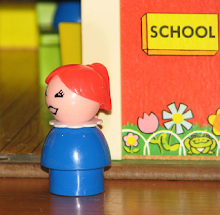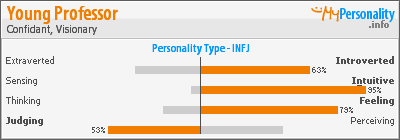I'll have to write this fast; I'm a girl in a hurry this week, with lots going on in other areas of my life. But I wanted to record something about our first attempt, as a class, to read a whole book.
There is one novel-reading built into the somewhat schizo syllabus of English Composition I. After struggling through the research papers (which I've been putting off, and still have to grade the final drafts of, eeegh), we turn into a literature class for three and a half weeks.
The novel we're doing is Revolutionary Road, by Richard Yates. It was picked by the head of the department. With all due respect, I think it's a strange choice for the students, who are mostly 18-19 and very much products of their own generation. Published in 1961, set in the '50s, Revolutionary Road is about the marriage of Frank and April Wheeler, who are 29 but feel old. They live in a new New York City suburb in Connecticut, in a small white house with a picture window. They have two children, seven and four, having started their family somewhat younger than they intended, due to an accidental pregnancy. April stays at home, naturalment, and Frank works in what is essentially the marketing department of a business-machines company in the city. Both Frank and April harbor the sense that they are special, intellectual, maybe even bohemian---certainly not as banal as their suburban/petit bourgeois circumstances of existence would imply. The plot propels into action as April hatches a plan to move the family permanently to France. Neuroses intervene, all building up to a melodramatic conclusion.
I didn't love the book, I've got to say; I found it a little bit sexist in parts (like the harsh treatment given to the real estate agent Mrs. Givings, the only non-secretary employed woman in the whole book), and grating in others (are we being asked to identify with Frank and April? They're so horrible. Just a shade too horrible, I think).
But more important than what I think about it, I consider it a weird choice for the students. Its concerns are a world apart from theirs (really, the choice of whether or not to live in the 'burbs sounds a little quaint, next to the kinds of tooth-and-nail fighting for jobs and promotions I imagine that my students will be doing), and its language and themes are old-fashioned but I don't think my students will be equipped to realize that. I suppose it is up to me to explain. And trying to explain is how the story of Thursday's disastrous class gets started, so......
One challenge I face in teaching literature is that our class periods are 90 minutes long: almost surely too long to simply have a discussion of the book, which is my favorite thing to do. So I have to break them up somehow. On Tuesday, we spent the first half of the class on a grammar lesson and then talked Revolutionary Road for half an hour. It went wonderfully. I had a couple of loud-mouthed students (in a good way) who really wanted to share their observations about Frank's character, and April's, and so on. Yay!, I thought to myself. This might not be such a bad unit, after all.
I'd decided to start each day of reading with a very short quiz, five questions, just to check to see if they'd done the reading. I ask factual questions about what happened in the book, and give an "A" for five questions right, a "B" for four, etc. An old teacher strategy suggested by my mom.
So I gave a quiz, for the second time, on Thursday. Then we launched into a thing I'd had the students do as homework, which I felt very proud of. Revolutionary Road is set in 1955. I had decided to have a day where I introduce the idea of historical criticism, as one approach to literature. I'd put the students in small groups and asked each one to research, as homework, the 1950s in one area: culture and leisure, politics, fashion, technology, and so on. I put the students together with the others who'd investigated their area, and asked them to prepare a short presentation for the class. They gave their presentations, and I chimed in myself to underscore the importance of various points: Sputnik, the space race, Levittown. It felt all right, pretty much.
Then, I was going to show them a clip from Leave It To Beaver, which I'd spent WAY too much time hunting down on the internet the day before. We were going to talk about what was '1950s' about it, based on what we'd just learned about the '50s. I wasn't sure this was going to work, but I had a hunch that they'd be better with visual analysis than they are with textual, and I wanted to give them something "fun" to sink their teeth into, anyway.
Of course, the A/V setup didn't work. After struggling, with student help, we got a picture, but there wasn't any sound. One student went downstairs to get the tech support guy, while I perched on the corner of a table and tried to switch to the later part of the lesson, which was to talk about what is '1950s' about Revolutionary Road. The students didn't really seem to get it, and I was feeling bad because I wasn't really sure what I had wanted them to say. What is there to say, besides "well, they live in the suburbs, and April doesn't work?" Maybe we could have gotten into it, but between the non-functioning of the A/V and the a general feeling of lassittude coming from the students, we didn't get anywhere.
The tech support guy finally arrived, causing more distraction; he eventually confirmed that there was something wrong with the audio setup of the computer, which couldn't be fixed that day, so no video. We were nearly at the end of class anyway, by that point, so I tried to press on with our discussion, abandoning the '50s thing and just trying to involve more students in the talk. No one was budging. It was all being carried by one student, god bless her heart, who had been talking a lot on Tuesday as well.
Then, slowly, it began to emerge that of the students who had done the reading, some of them didn't seem to understand what they had read on a pretty basic level. The book uses flashbacks---simple ones, I thought---to fill in the back-story of Frank's childhood and Frank and April's courtship. These had apparently confused some students a lot. "I did the reading, and I couldn't answer the questions on your quiz!," said one. Others had thought that Frank's memory of going to work with his father had been a story about Frank taking his son to work. The student who couldn't answer the quiz almost wailed at me, "I know you don't want to hear this, but you know, I hate reading, and I have all these other finals and midterms, and I'm so stressed out..." This was about the homework for this weekend, which is to read the next 80 or so pages of the book. I didn't know what to tell her, and I was feeling pissed off in spite of myself, at the general torpor in the room. I told her that I didn't really know what to say besides find a quiet place, read with a pen in your hand, underline and take notes. Break it up into two sections, but give yourself enough time to get warmed up. Give yourself about three hours to do it all.
That's about all I have time to write right now, but jeez. I have an idea for class next time, and I think it's going to go a lot better. I'm glad they revealed how hard it is for them to read the book, even though I have a hard time fathoming it. Part of me is excited about the challenge, and part of me, I have to admit, wants to say "OMG! What's wrong with you!?" I feel awful saying that. But on Thursday, it was true.
Monday, October 27, 2008
Subscribe to:
Post Comments (Atom)






1 comment:
I know this is late, but I hope your class went well. :)
Post a Comment